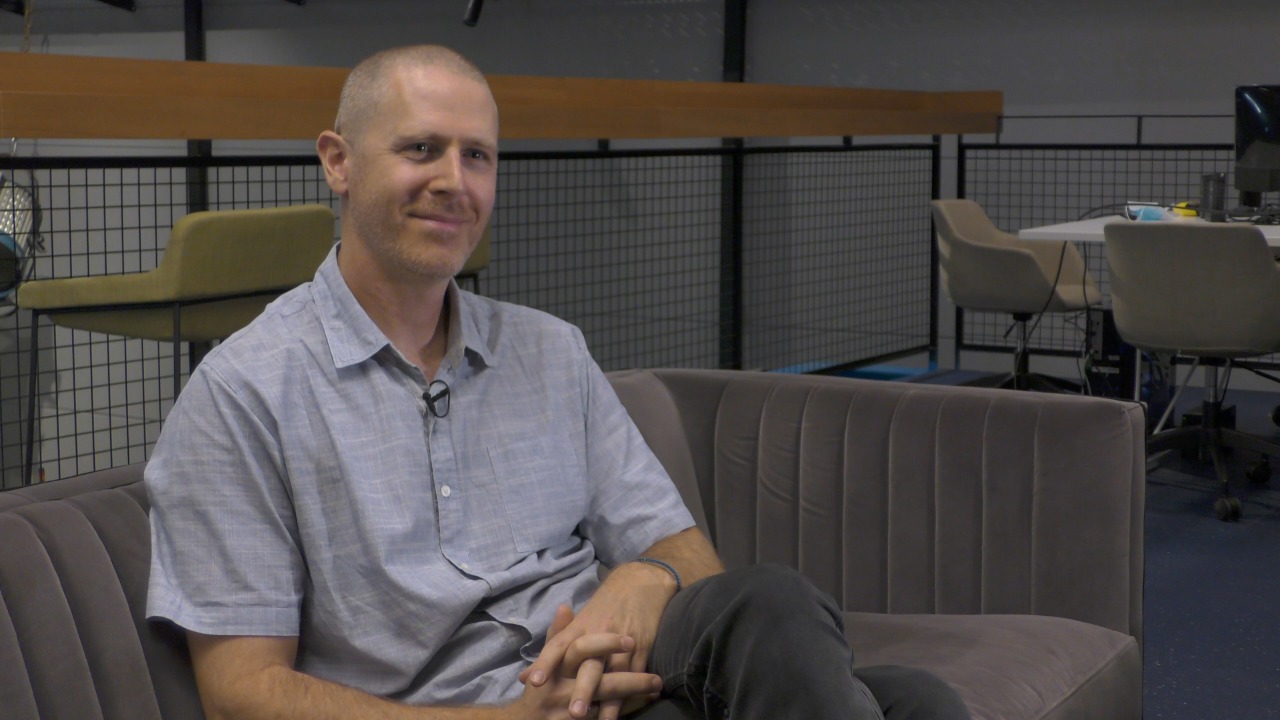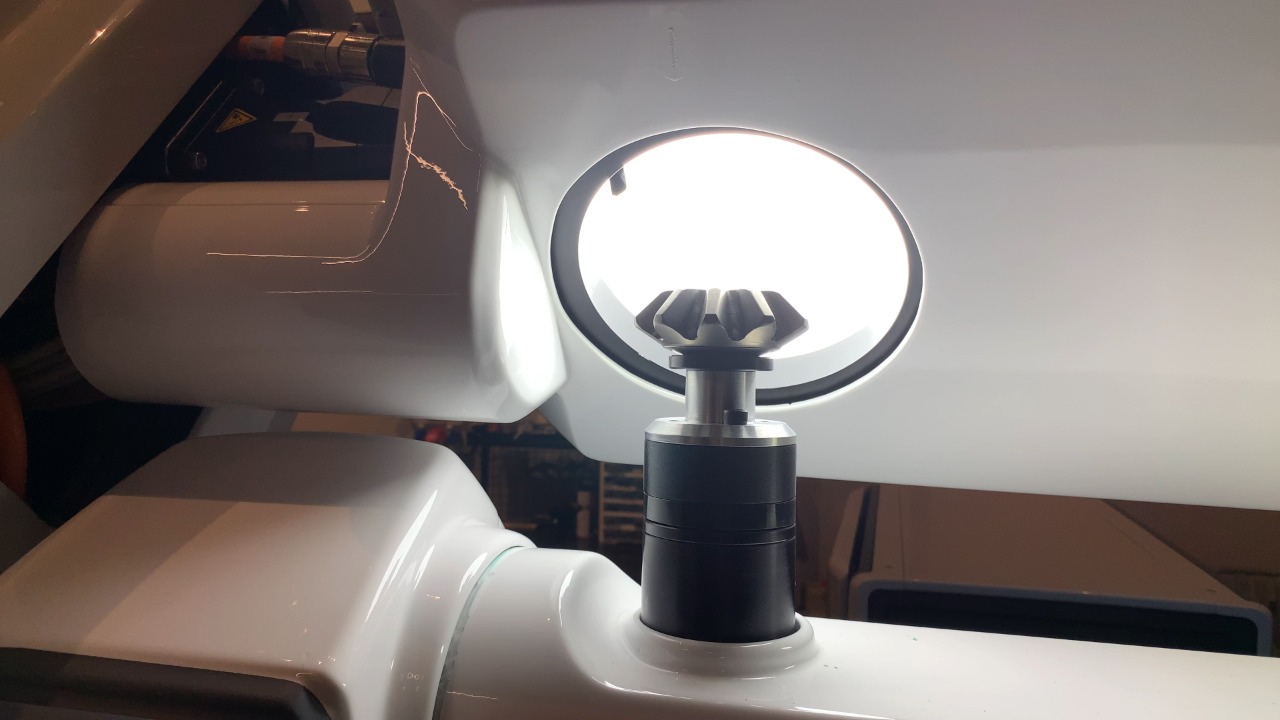Israeli-Japanese joint venture MusashiAI enters manufacturing industry with autonomous mobile forklifts, quality control visual inspector
They don’t require sick leave or social benefits and they can also work three shifts a day.
Musashi AI, which bills itself the world’s first robot employment agency, believes that it can revolutionize manufacturing with its artificial intelligence (AI)-powered robots.
A joint venture between Japan’s Musashi Seimitsu – a Honda Motor Corporation Affiliate Company – and Israeli company SixAI, MusashiAI treats robots as a service that companies can lease on a flexible basis.
According to MusashiAI’s General Manager Onn Fenig, renting robo-workers is less expensive than hiring their human counterparts.
“We came up with a business model that basically enables companies to lease the robotic solutions on a pay-per-use model,” Fenig told The Media Line. “Basically, if you are a company that has a need for a robotic solution, you partner with us like with any [staffing] agency.”

Onn Fenig, general manager of MusashiAI, Aug. 18, 2020. (Raymond Crystal/The Media Line)
According to Fenig, the cost of leasing the technology varies according to a business’s specific needs but generally ranges anywhere from $1,500 to $3,000 per month. At the moment MusashiAI is focusing their products on automating the manufacturing floor and offer two AI solutions: a forklift, and a quality control visual inspector.
Interestingly, the firm has also developed a proprietary kit that can transform any traditional forklift into a fully autonomous mobile robot. This is because unlike other autonomous forklifts on the market, MusashiAI’s AI system is external and requires no costly installation or additional floor sensors.
In other words, instead of each machine being equipped with its own computer, an external centralized artificial intelligence uses cameras mounted on the ceiling to direct the forklifts.
“We understood that the better way with many advantages is to bring the brain out of the vehicle and put it in a central system that can control and navigate the vehicles on the floor from one central place,” Fenig explained.
Aside from the forklifts, MusashiAI has also pioneered an autonomous robot quality control visual inspector that can detect even the tiniest of defects on metal surfaces, particularly useful for the automotive industry.

MusashiAI’s visual quality control inspector, powered by AI. (Raymond Crystal/The Media Line)
“The parts are loaded onto the machine with a robotic arm and then they are brought into the detection position where we have the optical bench, the illumination, and the cameras tailored for perfect image acquisition,” Eyal Yoskovitz, VP Products at MusashiAI, explained to The Media Line. “The model then takes these images, analyzes them and can detect what is a defect and what is just a simple anomaly that doesn’t require any special attention.”
We came up with a business model that basically enables companies to lease the robotic solutions on a pay-per-use model. Basically, if you are a company that has a need for a robotic solution, you partner with us like with any [staffing] agency
At the moment, MusashiAI’s robots have only been deployed as a workforce in Japan with their partner Musashi Seimitsu but they also have plans to launch around the world. Though the COVID-19 pandemic has slowed their commercial ambitions to a certain extent, it has also sparked a growing interest in boosting automation.
“We’re seeing increased interest in our products,” Fenig confirmed. “We’re getting requests from India to the US and China. Obviously, we’re in a very early stage in our life cycle so we still don’t have a fully blown commercial product ready.”
Will the robotics revolution result in fewer jobs for humans?
The World Economic Forum predicts that 1.2 billion workers worldwide will be affected by automation and AI technologies in the coming years.
In addition, analyst firm McKinsey recently released a report stating that roughly 40% of Europe’s workforce – or some 90 million workers – will have to learn many new skills in the next decade as a result of automation.
Nevertheless, along with the rise of the robot worker, some tech experts believe that new job opportunities will open up as productivity rises, allowing manufacturers to expand their operations.
For MusashiAI, the ultimate goal is not to replace humans but to free them from mundane and repetitive tasks.
“Humans are still doing very monotonous, rigid, boring and unsatisfying jobs,” said Fenig. “There’s nothing rewarding, satisfying, or even challenging about inspecting gears or turbine blades all day, or driving a forklift all day.”
In the future and as technology progresses, the company hopes to develop new types of robots that could be used in the fields of security, services and health care.
“At the end of the day, the human brain is probably the most sophisticated and efficient machine out there, especially in terms of drawing conclusions and making deductions,” he conceded. “But with the advancements in technology, artificial intelligence will enable robots to work at least as fast and accurately as humans.”